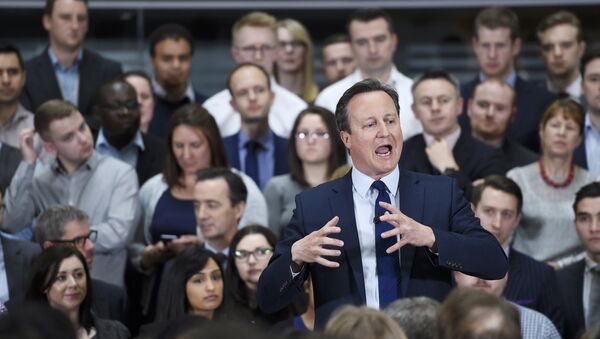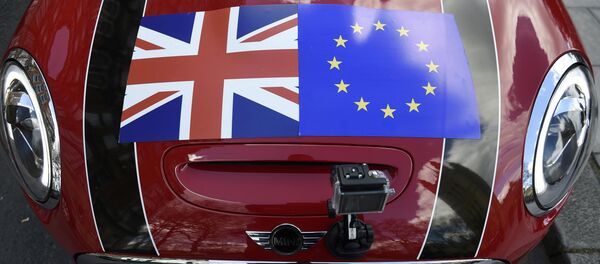Cameron is campaigning to keep the UK in what he calls "a reformed EU" after having won a series of concessions form EU leaders at their summit in February. He was forced into calling a referendum because of rising Euroskepticism — including a huge increase in support for anti-EU UK Independence Party (UKIP) — as well as deep divisions within his own Conservative party.
Why the Government believes we are stronger, safer and better off in the EU — a new website with key facts: https://t.co/d918Xqgi0h
— David Cameron (@David_Cameron) April 6, 2016
The lead campaign groups have not yet been designated and — when they are — they have a legal cap of US$9.85 million — which the government campaign exceeds.
The UK Government has announced it is to spend US$13 million sending out leaflets to every household which critics say is a deliberate act to push the case for remaining. The government website stated:
"The leaflet sets out the facts, explains why the government believes a vote to remain in the EU is in the best interests of the UK, and shows some of the choices the country would face if it were to leave. It also encourages the public to register to vote by the 7 June and directs them to where they can do this."
Outside Regulated Period
However, the Electoral Commission told Sputnik that there was nothing to stop the government sending out the leaflets, as it is being done ahead of the regulated period.
LOL, they've asked for it.They're getting it #Brexit pic.twitter.com/ZRYfKraIWM
— Ann Sheridan (@bernerlap) April 7, 2016
"The Electoral Commission is responsible for regulating the rules on spending in the run-up to the EU Referendum. The rules on spending apply during the regulated period which start on 15 April and ends on polling day, 23 June. The rules exclude spending that is met out of public funds, which includes spending by the government on the government information booklet."
"After the referendum on Scottish independence the Electoral Commission recommended that governments should conduct no taxpayer funded advertising activity during the regulated period. However, Parliament decided not to put any legal restrictions on government activity until 28 days before the poll, the 27th May. These are the same rules that were in place for other recent referendums," the Electoral Commission told Sputnik.
Vote Leave spokesman Robert Oxley said:
"Number Ten is trying to distract the media's attention from the issue of whether the Prime Minister's family money is kept in offshore trusts. The Government promised that it would not take on the lead role in the referendum, so it's disgraceful that they're spending taxpayers' money which could go to the NHS on EU propaganda instead."
If you, like me, think this is wrong and a gross misuse of public funds, please join me in signing here: https://t.co/2jPs8XXALn. #Leave #GO
— Tom Pursglove MP (@VotePursglove) April 6, 2016
Vote Leave campaigners pointed to a government denial in September, that it would pay for propaganda. Europe Minister David Lidington, told lawmakers:
"We have no intention of legislating to allow the government to do things such as mailshots, paid advertising or leafleting."
The government is also launching a pro-EU standalone website EUreferendum.gov.uk which will feature the leaflet online and provide further information to the public.



